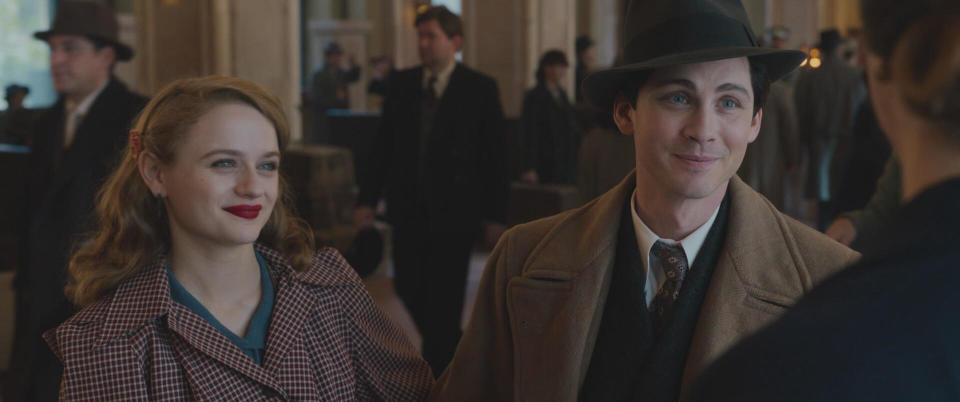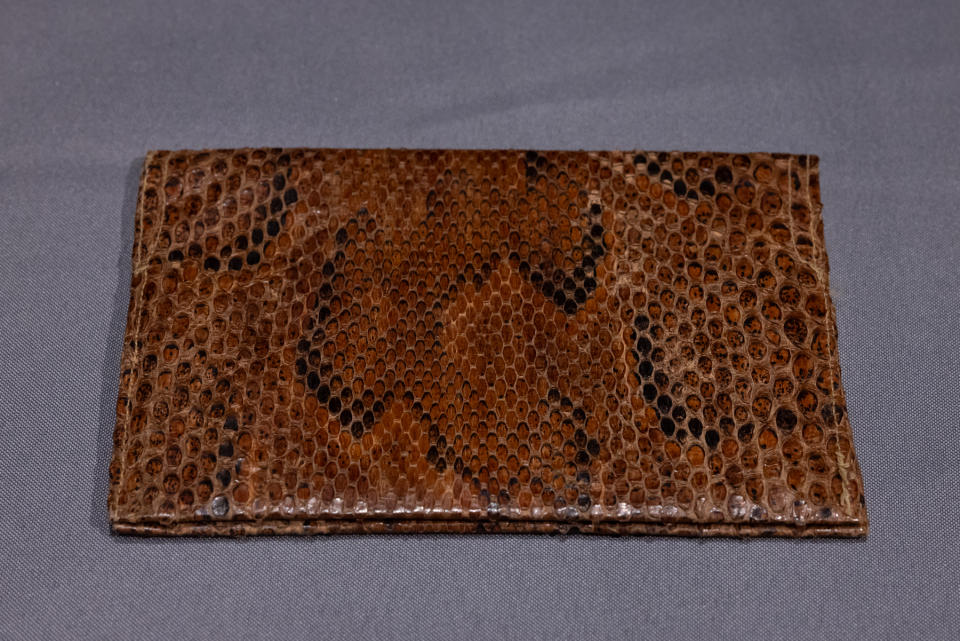The True Story Behind Hulu's Holocaust Drama We Were the Lucky Ones
The author Georgia Hunter grew up hearing that her granduncle kept a fake penis foreskin on hand in case he had to show proof that he wasn’t Jewish in Warsaw during the Holocaust.
As the story was told to Hunter, her relative, an architect named Adam, was so desperate not to be discovered as Jewish that he stuck a bandage on his member with an egg white and water mixture. When a landlord’s wife confronted him, accusing him of hiding his real identity, he dropped his pants in front of her. The getup fooled her. The woman apologized profusely and hurried out of the apartment.
That moment, depicted in Hunter’s 2017 novel We Were the Lucky Ones, appears in an episode of the TV adaptation of the same name, out Mar. 28 on Hulu. Adam (played by Sam Woolf) and Hunter’s grandaunt Halina (Joey King) collapse in giggles afterwards at the great lengths he went to hide his Jewish identity. But it was just one of many life or death situations that Adam and his family faced trying to stay alive during the Holocaust.
The novel and Hulu show are inspired by the Kurc family, Hunter’s real great-grandparents and their five children who got separated when the Germans invaded Poland in 1939. The eight-episode series is all about their efforts to come back together, and how they manage to survive and reunite after the war. Showrunners got to work off of a decade of research that Hunter, a co-executive producer, did for the novel, like oral histories available via USC’s Shoah Foundation. And several scenes in the movie are recreated from family photographs that Hunter tracked down over the years across the globe.
Hunter first learned that her grandfather Addy (Logan Lerman), a composer and engineer who lived in France when the war first broke out, came from a long line of Holocaust survivors while doing a family history assignment in high school. She then assumed the role of the family’s historian, trying to learn as much about this dark chapter in her relatives’ lives. Sheet music for her grandfather’s first big hit “The List” still exists, and Lerman plays an excerpt in the Hulu show (plus there’s a 1930s recording of it on SoundCloud.)

Through her research, Hunter learned that her granduncle Geneck had a baby with his wife in a gulag in Siberia. Hunter found handwritten descriptions of his time in Siberia at the Hoover Institution at Stanford University.
Adam, who kept the fake foreskin, made fake IDs for members of the underground resistance movement. His wife Halina, tried to protect her parents by getting them jobs at a gunpowder factory and then found them a family they could hide with during the duration of the war.
Hunter’s grandaunt Mila, her grandfather’s sister, had to manage hiding her Jewish identity in Warsaw and hiding her toddler named Felicia. She put her in a convent, dyed her hair blonde and changed her name to Barbara. During the day, she worked a series of brutal jobs, and as one devastating scene in episode six shows, a housewife that Mila is working for throws a vase at her head—a story Hunter says got passed down in her family. Mila donated some of the wartime dresses that Felicia wore to Yad Vashem, the Holocaust history museum in Israel, and a replica of a dress Felicia wore with the fake name “Barbara” stitched on it appears in the show.
On Mar. 26, Hunter and her family members gathered in Washington, D.C. to donate the family archive to the United States Holocaust Memorial Museum so it can inform future scholarship. Among the notable artifacts are family photos, the fake IDs and papers that Adam and Halina used to pretend they were married, and Hunter’s grandfather Addy’s snakeskin wallet, where he kept declined visas, military papers, health records—various documents he used to try and get out of France and immigrate somewhere safer.

Hunter hopes learning about the Holocaust through the story of one ordinary family’s extraordinary journey will make a vast, complicated history more relatable. The series, she says, “allows us just that.” The episodes “shed light on what's happening across borders today,” she says, adding that she hopes viewers will come away with more empathy for refugees.
Write to Olivia B. Waxman at olivia.waxman@time.com.


